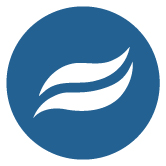

|

|
| Major: 5287
Catalog Year: 2023-2024
Effective Term: 2019 Summer
Last Admit Term: 2020 Spring
Award: CCL Total Credits: 39 CIP Code: 51.1501 |
Primary College:
Initiating College: Rio Salado College
Program Availability: Not Found
Program Availability: College-Specific
Field of Interest: Behavioral Sciences and Human Services
Instructional Council: Counseling (23) GPA: 2.00 |
|
SOC Code: 21-1011.00 Substance Abuse and Behavioral Disorder Counselors
21-1014.00 Mental Health Counselors 33-1012.00 First-Line Supervisors of Police and Detectives 43-5031.00 Police, Fire, and Ambulance Dispatchers 33-3052.00 Transit and Railroad Police 33-3021.01 Police Detectives 33-3021.02 Police Identification and Records Officers 33-3051.01 Police Patrol Officers 33-3051.00 Police and Sheriff`s Patrol Officers 33-3012.00 Correctional Officers and Jailers 33-9032.00 Security Guards 33-3021.05 Immigration and Customs Inspectors 23-1012.00 Judicial Law Clerks 33-3011.00 Bailiffs 33-3021.00 Detectives and Criminal Investigators 33-3021.06 Intelligence Analysts 33-3021.03 Criminal Investigators and Special Agents | |
| Learning Outcomes | |||
|---|---|---|---|
| 1. Identify symptoms of addictions and substance use disorders. (ASD100)
2. Describe the relapse process. (ASD100) 3. Demonstrate beginning skills in identification of co-occurring disorders. (ASD100) 4. Demonstrate an understanding of ethical communication. (ASD102) 5. Describe the counseling process in terms of objectives and issues of the initial counseling sessions, middle phase, termination of counseling, and follow-up. (ASD102) 6. Describe how to establish the atmosphere for counseling, encourage clients and family members to establish counseling goals, commit to work on those goals, and to become involved in self-help groups. (ASD102) 7. Identify the major concepts and goals of major counseling theories. (BHS205) 8. Identify the fundamental principles of self-help groups and differentiate between counseling and self-help models. (ASD150) 9. Identify and critically analyze the twelve steps. (ASD150) 10. State the psychological and pharmacological effects of substance use/abuse. (ASD110) 11. Explain roles, functions, and limitations of the addictions and substance use disorders counselor. (ASD120) 12. Identify the professional standards for practice, ethics, and development for the addictions and substance use disorders counselor. (ASD120) 13. Describe strategies and treatment modalities recommended for working with persons with AIDS. (ASD145) 14. Identify and describe laws pertaining to confidentiality, maintenance of client records, and reporting child abuse. (ASD161) 15. Demonstrate ability to complete a psychosocial assessment, a mental status assessment, and progress notes. (ASD161) 16. Describe how to establish client rapport. (ASD165) 17. Describe roles assumed by individuals in the family impacted by addiction. (ASD220) 18. Describe Fetal Alcohol Syndrome and fetal alcohol effect. (ASD220) 19. Summarize the variations of language, gender and age specific issues, and major pattern variations of addictions and substance use/abuse among diverse populations. (ASD226) 20. Identify transcultural communication/counseling styles (ASD226) 21. Describe the recovery process. (ASD236) 22. Describe the relapse process. (ASD236) 23. Describe client`s relapse triggers. (ASD236) 24. Compare and contrast different treatment approaches in treating clients with co-occurring disorders. (ASD245) 25. Identify group stages and tasks. (ASD250) 26. Describe group intervention. (ASD250) 27. Demonstrate methods for dealing with problematic behaviors which occur with clients. (ASD250) 28. Demonstrate case management skills. (ASD275) 29. Describe ethical issues facing the addictions and substance use disorders counselor. (ASD275) 30. Determine and summarize personal counseling style and philosophy. (ASD275) 31. Demonstrate record keeping and documentation skills. (ASD275) 32. Describe addictions and substance use disorders counseling skills and techniques. (ASD275) | |||
| Program Notes | |||
|---|---|---|---|
| Students must earn a grade of C or better for all courses required within the program.
+ indicates course has prerequisites and/or corequisites. Licensing and certification requirements vary by state. | |||
| Admission Criteria | |||
|---|---|---|---|
|
Program Prerequisites: None
|
|||||||||||
| Required Courses | |||||||||||
|---|---|---|---|---|---|---|---|---|---|---|---|
ASD220 Family Dynamics and Addiction 3 | Credits: 16 | ||||||||||
| Restricted Electives | |||
|---|---|---|---|
ASD130 Legal Aspects of Addiction 1 | Credits: 2 | ||
| General Electives | |||
|---|---|---|---|
|
| Credits: | ||
|
+ indicates course has prerequisites and/or corequisites.
++ indicates that any suffixed course may be selected. MCCCD Governing Board Approval Date: May 24, 2011 |